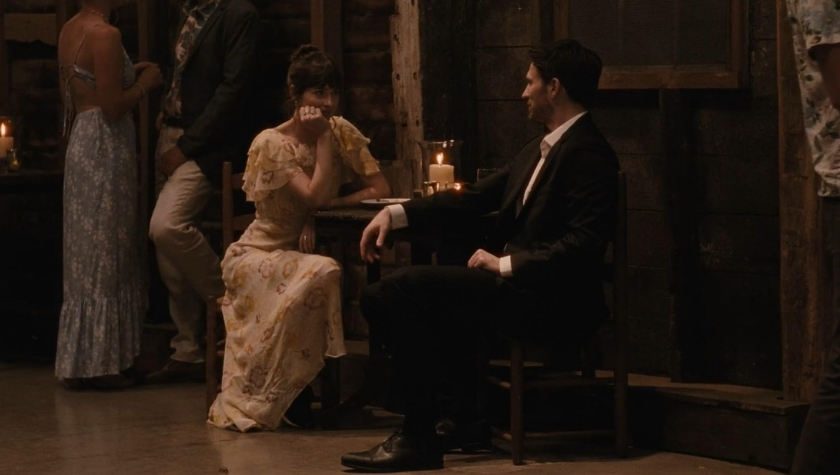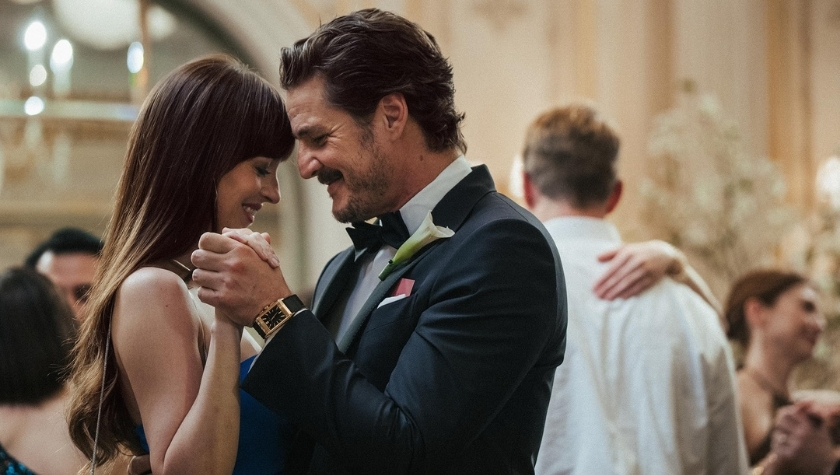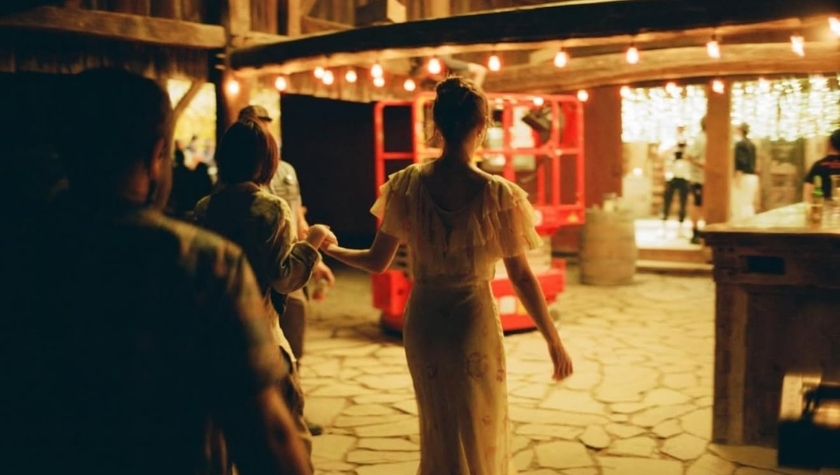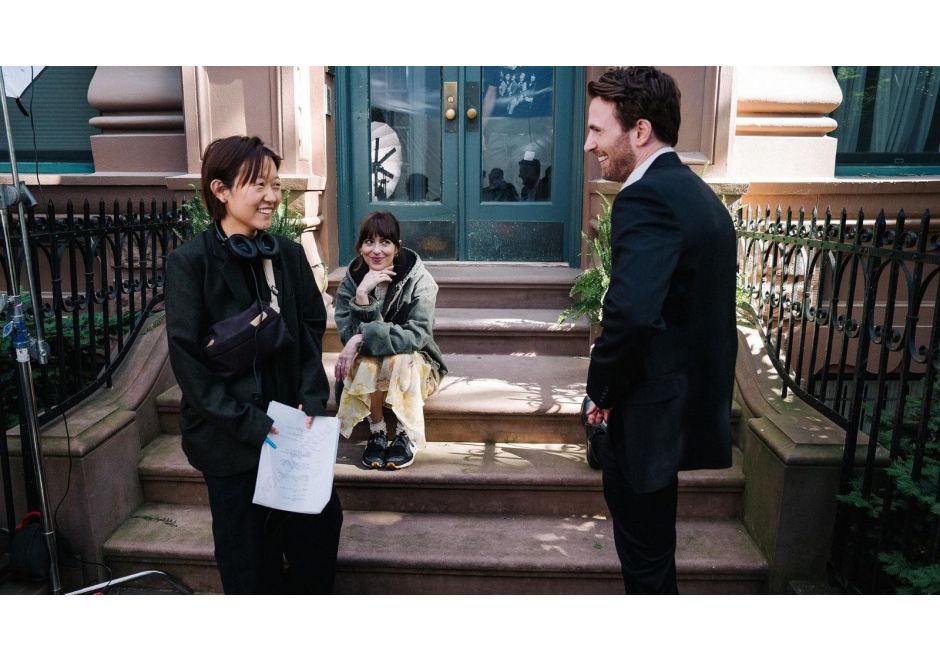Writer/director Celine Song knows how to make audiences root for relationships. She writes realistic, flawed, yearning characters going through realistic adult drama.
Her feature debut Past Lives earned two Oscar nominations in 2024, including Best Picture and Best Original Screenplay, making Song the first Asian woman nominated for Best Original Screenplay. The semi-autobiographical film about childhood friends reconnecting as adults became a critical darling for all its quiet heartbreak.
Her second feature, Materialists, a modern romance, was released in theaters this past June. Like Past Lives, it's set in New York and explores themes of love, identity, and the complicated choices people make about relationships. (The film is now on HBO if you missed it during its theatrical run.)
The story follows Lucy (Dakota Johnson), a successful New York matchmaker who views clients as assets and love as a series of checkboxes to hit. In her own search for a husband (whose only necessary quality is extreme wealth) she meets her perfect match (Pedro Pascal). But on the same night, she runs into an old flame (Chris Evans), who happens to be a poor actor.
Song, who worked briefly as a matchmaker herself in the city, always knew she wanted to write something about that part of her life and the calculation she saw in others. What results is initially a slightly cynical romcom through Lucy’s eyes, as she sorts out what she really wants from her love life.
We chatted with Song to learn about the differences in writing for the stage and for film, killing your darlings, and what writers need to know about silence.
Editor’s note: The following conversation has been edited for length and clarity.
Final Draft: You did matchmaking as a job while you were early in your career. You’ve talked about how you knew you wanted to write about it and the commodification of relationships. But how do you work with theme?
Celine Song: When it comes to the theme, I think that usually the character is going to start speaking on the theme as it goes, almost.
I think that more than theme, the way I think about it is like, “Well, what is the story about? And what is it that the character wants?” And then, “What is it that the character actually needs?” which are often very different things. In the case of Lucy, very different things.
So I think that it's so much more about the way that I'm constantly asking the question of, “Well, what is it about? What is it about? What is—“ Until there is a theme that emerges.
And then usually during my second draft, I'm able to approach the second draft with knowing what the theme is. I learned what the theme is through the writing of the first draft, if that makes sense. I learn so much from my script because as I'm working on it, it usually tells me what the theme is, what the story is, and what the character is, too.
Final Draft: I'd love to hear more about your revisions. How do you approach making your script stronger, and what are you looking for?
Celine Song: I think it's always just a matter of—I was going to say something like the feeling’s abstract, but the truth is, it really is a matter of reading it over and over again.
Sometimes you're reading it through other people, too. Sometimes I like doing a little living room reading of a really early draft that teaches you better than almost anything.
And of course you ask people to read it if you have people who [are] going to help you read it. But then even before it exits the circle of one—which is me, of people who have read the script—I think alone, I think I read it somewhere between 10 to 20 times before it feels ready to be shared with anyone else.
Final Draft: Those out-loud readings can be so helpful because you feel when people lean in or when they disengage.
Celine Song: What doesn't work? What works? What's a little slower than you think, or what's really moving well? I find those readings to be really important if they are wonderfully low-stakes with writer friends. I think writer friends are the ones who I've found that are the most helpful.


Final Draft: You've also talked about how if a conversation doesn't change anything about the characters, it's not worth including. So I'd love to hear more about what that means to you.
Celine Song: That's completely true. I think this is a pretty old, pretty profound thing that I've always learned through the basics of drama, because I went to grad school for drama. So to me it's like, that's such a foundational thing about how a scene should be.
A scene should always be something that either moves the character forward or the theme forward, and everything else has to go. And then I feel like the moment that in the scene that it stops moving the character forward, that's when the scene should end.
I think that I always knew that, and that's a huge part of the revision process. To see where there are extra pages or extra lines in there, where it stops moving the whole thing forward. I would say it's a traditional dramatist wisdom to say if a scene stops moving the action forward, and we're not wondering what happens next in the scene, the scene should leave your script.
Final Draft: Yeah. That's so hard to do.
Celine Song: Oh, yeah. Kill your darlings. I think that's the hardest thing.
And I think there is always a moment where you're like, “Well, it's crazy that I held onto that scene for so long just because of how it made me feel finishing it.” Or if there's something in it that's really personal. Or there's always something that you're like, “Oh, I'm really holding tight onto that scene.”
And then you do have to face the truth about it, which is that if it doesn't belong in your script, it has to go. But maybe you'll come up with another script. Maybe in another script you'll be like, “Oh, that conversation should actually happen in this story.”
Final Draft: I like thinking about it that way. It's not like you're getting rid of it forever.
Celine Song: No. It's like, “Well, this is not the right one for you." It is like matchmaking, right? Is this piece of dialogue or is this scene, or is this set-up—it’s beautiful as is, but it's not maybe right for this movie.


Final Draft: I'd love to hear you talk about what you've learned from moving into screenplay writing, for film rather than stage.
Celine Song: The difference in the form of theater versus film or TV, to screen, to me it's always about how a writer handles time and space.
Because in theater, time and space can be quite figurative, and it is always happening in the same room. And what's happening is that within that room, you're trying to conjure up through the audience's imagination and through the language, a whole world that people are going to be transported to, whether it's through time or through space. You become a time/space traveler when you're sitting in a play.
So all that means to me, is when you are setting a story on Mars, all you have to do is have a character sit on stage and say, “Well, I'm on Mars today.” And then the whole audience has to come with you to Mars. And that's amazing about theater.
Meanwhile, I think that when it comes to screen, if you want to tell a story on Mars, you have to either go to Mars and shoot it there, or you have to build Mars, that looks very much like Mars, for it to sell. So I think that time and space on screen is more literal.
I think as a result of that, there are many different ways that you can handle that as a writer, but I think that's the fundamental way that those two mediums are very, very different.
When it comes to something like a closeup, one of the ways that you can tell the story, sometimes it's like, "How do you do a closeup?” On stage, there are simple ways to actually do it, which is that you change the light cue.
So let's say you have to do a closeup of this cup because it's been poisoned. And what it can be is that you can put a tiny little spot line on this cup on the stage, and we're all going to see the cup and be like, “Oh, we’ve got to pay attention to that.”
Because that’s all we mean by a closeup, which is that we're basically pointing to something and saying, “You have to pay attention to this." So on stage, there are many ways to do that. Let's say there has to be a closeup on a new character who walks into the room. You're going to hear the footsteps of that character. And then you're going to see the way that the character who's in the room is reacting to the sound of the footsteps. That's how you create a closeup of these two characters of what they're going through.
On the screen, the camera becomes what the audience is looking at. So what you're trying to do is you're trying to direct attention. When in theater you're trying to direct attention [through] all these different tools. And in film, the camera is trying to direct the attention of the audience.
I think as a result, you can achieve more things in film with less words, because sometimes the image is going to be the language. Meanwhile, in theater, sometimes you do have to say what is happening just so the audience knows what to pay attention to.
But when you're able to tell the story through camera, then what happens is that … you can basically achieve things without language because the image becomes one of the languages, and it becomes honestly, probably the most dominant, most powerful language, of the whole medium. I think it actually means that I always find that with film, I have less dialogue, and a lot more silence, and a lot more storytelling through environment or pointing to objects or pointing to different kinds of silences, too.
Final Draft: And I think that's something that's so beautiful about your work, is that you let so much of that emotion breathe in those heartbreaking silences.
Celine Song: It's interesting. I think that film can handle more silence in some ways, because you can tell more story within the silence, than I think sometimes in theater.
The reason why I know that the audience is going to be very comfortable with silence, as long as it has content—as long as the silence has meaning—is because of theater, and what I know about theater. There's so much silence built into plays that the audience will sit on the edge of the seat for. I've seen it. So I know that the audience is more patient than I think that the modern media thinks they are.
But on the other hand, it's strange to me that in film or TV, there is always a fear of you losing the audience's attention. And you're like, “Yeah, but what's amazing is that you have image to spend that time with.” And we can sit in [a] beautiful image forever.
So in a way, in film, there's more opportunity for silence, because it's actually easier to imbue silences with meaning, because there's image there.


Final Draft: With all of your experience, do you have one piece of advice you would give to a writer right now?
Celine Song: I think it's changed many times over the course of my life and career, what the answer to this question is. But I think that right now, my feeling is it is absolutely the thing that the writer has to do, which is to remember that the worst thing that can happen if you write something is that it is bad.
And being a writer means that you have to accept the humiliation and the embarrassment that comes with it being bad. And that's the only way that you're going to be better.
Another way of saying it's like, “Well, when you see other people's writing, we're seeing their highlight reel.” And you have to sit in your room, and you get to see your rehearsal, or your practice. That's what they call it. We are there spending most of our lives doing practice, and we only get to watch other people's highlight reels.
It could all get summed up into, it's a bare minimum to have the courage to write and finish something, and then to share it. It's a bare minimum of courage that is required of a writer.
So all it is is that you do have to finish it, and you do have to show it to someone and try to get it made. I think that’s the only advice that right now makes sense to me.

